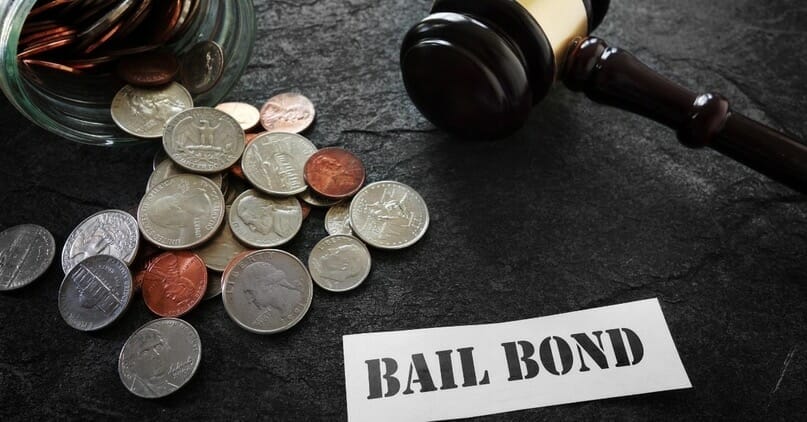
- Felonies
- *
- Misdemeanors
- *
- Drug/Narcotics Violations
- *
- Sex Offenses
- *
- Gun / Weapons Violations
- *
- Robbery
- *
- Burglary
- *
- Assault
- *
- Theft
- *
- White Collar Crimes
- *
- Domestic Assualt
- *
- Property Damage
- *
What Should You Know About Cosigning a Bail Bond
A loved one has been arrested and asked you to co-sign their bail bond. Unfortunately, not many people have the cash reserves to pay the bail's total amount to get the defendant released from jail.
Before co-signing bail bonds, or signing an indemnity agreement, you must learn the facts and your responsibilities. Co-signing a bail bond comes with risks, so you must understand what a bond entails.
Co-Signing Often Means Putting Up Tangible Property
As a bond co-signer, you may be asked to put up tangible property for collateral, such as a home, car, or land. Because you are putting up your property, you must know what to expect from the bond process and your possible risks.
What happens if someone goes to jail (and you're the cosigner)? You may lose your bail if you've co-signed a bail bond and the defendant returns to jail or does not appear for court hearings. Understanding what a bail bond means and your responsibility as a co-signer is essential, as not everyone agrees to be a co-signer.
You may also be asked to sign a promissory note for the full amount of the bail bond. You would then be required to pay this full amount of money if the defendant does not show up for court, as a result of the signed promissory note
Important Things You Must Know as a Bail Bonds Co-Signer
Before a person signs for a bond, there are a few things you need to know.
- You must put up a fee for the bail bond company. The fee for bail bonds is non-refundable and is a percentage of the bail amount.
- Once you pay the full fee, put up collateral, and sign the paperwork, the defendant will be released from jail.
- As a co-signer, you will sign an indemnity agreement and must ensure the defendant shows up for all court hearings. If they fail to appear in court, you risk losing your property.
- If you feel uncomfortable with the defendant's behavior, you have the right to ask the bail bondsman to cancel the bond, and the defendant will be returned to jail.
- Should you learn that the defendant has fled or does not plan to show up for court, inform the bail bondsman right away to protect your property and cash.
- Your co-signed bail bond account will appear on your credit report and may impact your credit score, especially if you are late on payments or do not pay.
Who Is Allowed to Co-Sign Bail Bonds?
Anyone can co-sign a bail bond, but it is up to the discretion of the bail bond company whether they accept. The co-signer must be a U.S. citizen and have lived in the community for a specific time.
As a co-signer, you must have a good credit score and stable employment, among other bond requirements. Some courts may have additional stipulations for the defendant before release, such as mandatory enrollment in a drug treatment program, mental health evaluation, or other bond requirements.
A bail bond company usually prefers co-signers who are family or close friends of the defendant. Defendants are more likely to show up for court if they know their co-signer could suffer consequences if they do not.
Reduce Your Risks as a Co-Signer
We often get the question of “what happens if someone goes to jail you’re the cosigner.”
Although co-signing a bail bond is risky, there are some steps you can take to reduce the risks. Do the following, and have greater peace of mind in the process:
- Call the defendant daily to check on them. Make sure they remember their court dates to avoid returning to jail.
- Call the defendant's employer to verify they are showing up for work and have stable employment.
- Maintain your bond records. Ask the defendant to verify the information.
- Read the entire bond agreement. If you need help understanding something within the bail bond paperwork, make sure to ask before co-signing a bail bond.
- Never sign bail bonds if you do not know the person well or cannot trust them.
Ask Yourself These Questions
Before a person signs any bail bonds, we recommend asking yourself the following questions. If you are concerned about the answers, you should say no.
- Has the accused person ever skipped court before?
- Is this their first time needing to be bailed out of jail? Have they gone to court previously?
- Can you trust the defendant to appear in court? Are they reliable?
- How much money does the defendant make?
- If the defendant is required to undergo a mental health evaluation, will they attend?
- Does the defendant have the funds to repay the bond?
- How much cash does the defendant have in their bank account?
- Does the accused person have a past or present drug problem, or have they been through a drug treatment program?
- Was the defendant taken to jail and accused of a serious crime?
Allow a Bail Bond Company to Answer Your Questions
Never allow anyone to make you feel forced into being a co-signer on bail bonds to get them out of jail. It is your right to say no to co-signing any bail bonds; not everyone feels comfortable co-signing them.
If you're considering co-signing a bail, you likely have many questions. We hope we have answered some of those here. If you are a first-time co-signer, navigating the court and bond system and getting someone out of jail can be confusing.
As a bail bond company, we are here to take you by the hand and help you better understand your obligations. Contact us now to learn more about what a bail bond means and your options for paying the entire bond.







